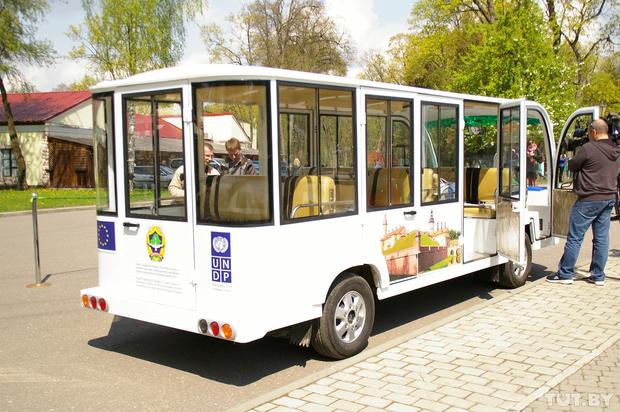Disclaimer:
Please be aware that the content herein has not been peer reviewed. It consists of personal reflections, insights, and learnings of the contributor(s). It may not be exhaustive, nor does it aim to be authoritative knowledge.
This is Nesvizh, a UNESCO point where the ancient park fo 5 ha full of stories is situated. Many elderly people go there every year. But it was inconvenient for people to go hiking around these 5 ha of specially protected nature area, where the usage of transport with internal combustion engines is prohibited.
So, the Victor Rovba proposed to organize the internal logistics in the park with the use of motorless and e-transport.
For the groups of 7-10 people with elderly ones the electric bus was purchased.
For the small groups of 2-4 people where there are younger people - the velomobiles were purchased,
For the families or pairs - bicycles and hyroscooters were purchased.
All these helped to speed up the tourist flow, and now Nesvizh park can accept 4 times more tourists than before. The revenue also increased, surely.
The e-bus is widely used to transport weddings. The e-bus was adapted to the climate of Belarus by producing doors and installation of Webasto heater. This allowed to widen it's use during the year and use it until the temperature is upper than +7 degrees Celsium (from early April up to November)


 9Industry, innovation and infrastructure
9Industry, innovation and infrastructure 13Climate action
13Climate action 15Life on land
15Life on land
Comments
Log in to add a comment or reply.